第383章
[Some account of my father's connection with the Index of Plant-names now (1887) in course of preparation at Kew will be found in Mr. B. Daydon Jackson's paper in the 'Journal of Botany,' 1887, page 151. Mr. Jackson quotes the following statement by Sir J.D. Hooker:--"Shortly before his death, Mr. Charles Darwin informed Sir Joseph Hooker that it was his intention to devote a considerable sum of money annually for some years in aid or furtherance of some work or works of practical utility to biological science, and to make provisions in his will in the event of these not being completed during his lifetime.
"Amongst other objects connected with botanical science, Mr. Darwin regarded with especial interest the importance of a complete index to the names and authors of the genera and species of plants known to botanists, together with their native countries. Steudel's 'Nomenclator' is the only existing work of this nature, and although now nearly half a century old, Mr. Darwin had found it of great aid in his own researches. It has been indispensable to every botanical institution, whether as a list of all known flowering plants, as an indication of their authors, or as a digest of botanical geography."Since 1840, when the 'Nomenclator' was published, the number of described plants may be said to have doubled, so that the 'Nomenclator' is now seriously below the requirements of botanical work. To remedy this want, the 'Nomenclator' has been from time to time posted up in an interleaved copy in the Herbarium at Kew, by the help of "funds supplied by private liberality." (Kew Gardens Report, 1881, page 62.)My father, like other botanists, had as Sir Joseph Hooker points out, experienced the value of Steudel's work. He obtained plants from all sorts of sources, which were often incorrectly named, and he felt the necessity of adhering to the accepted nomenclature, so that he might convey to other workers precise indications as to the plants which he had studied. It was also frequently a matter of importance to him to know the native country of his experimental plants. Thus it was natural that he should recognize the desirability of completing and publishing the interleaved volume at Kew.
The wish to help in this object was heightened by the admiration he felt for the results for which the world has to thank the Royal Gardens at Kew, and by his gratitude for the invaluable aid which for so many years he received from its Director and his staff. He expressly stated that it was his wish "to aid in some way the scientific work carried on at the Royal Gardens" (Kew Gardens Report, 1881, page 62.)--which induced him to offer to supply funds for the completion of the Kew 'Nomenclator.'
The following passage, for which I am indebted to Professor Judd, is of much interest, as illustrating the motives that actuated my father in this matter. Professor Judd writes:--"On the occasion of my last visit to him, he told me that his income having recently greatly increased, while his wants remained the same, he was most anxious to devote what he could spare to the advancement of Geology or Biology. He dwelt in the most touching manner on the fact that he owed so much happiness and fame to the natural-history sciences, which had been the solace of what might have been a painful existence;--and he begged me, if Iknew of any research which could be aided by a grant of a few hundreds of pounds, to let him know, as it would be a delight to him to feel that he was helping in promoting the progress of science. He informed me at the same time that he was making the same suggestion to Sir Joseph Hooker and Professor Huxley with respect to Botany and Zoology respectively. I was much impressed by the earnestness, and, indeed, deep emotion, with which he spoke of his indebtedness to Science, and his desire to promote its interests."Sir Joseph Hooker was asked by my father "to take into consideration, with the aid of the botanical staff at Kew and the late Mr. Bentham, the extent and scope of the proposed work, and to suggest the best means of having it executed. In doing this, Sir Joseph had further the advantage of the great knowledge and experience of Professor Asa Gray, of Cambridge, U.S.A., and of Mr. John Ball, F.R.S." ('Journal of Botany,' loc. cit.)The plan of the proposed work having been carefully considered, Sir Joseph Hooker was able to confide its elaboration in detail to Mr. B. Daydon Jackson, Secretary of the Linnean Society, whose extensive knowledge of botanical literature qualifies him for the task. My father's original idea of producing a modern edition of Steudel's 'Nomenclator' has been practically abandoned, the aim now kept in view is rather to construct a list of genera and species (with references) founded on Bentham and Hooker's 'Genera Plantarum.' The colossal nature of the work in progress at Kew may be estimated by the fact that the manuscript of the 'Index' is at the present time (1887) believed to weigh more than a ton. Under Sir Joseph Hooker's supervision the work goes steadily forward, being carried out with admirable zeal by Mr. Jackson, who devotes himself unsparingly to the enterprise, in which, too, he has the advantage of the active interest in the work felt by Professor Oliver and Mr. Thiselton Dyer.
The Kew 'Index,' which will, in all probability, be ready to go to press in four or five years, will be a fitting memorial of my father: and his share in its completion illustrates a part of his character--his ready sympathy with work outside his own lines of investigation--and his respect for minute and patient labour in all branches of science.]